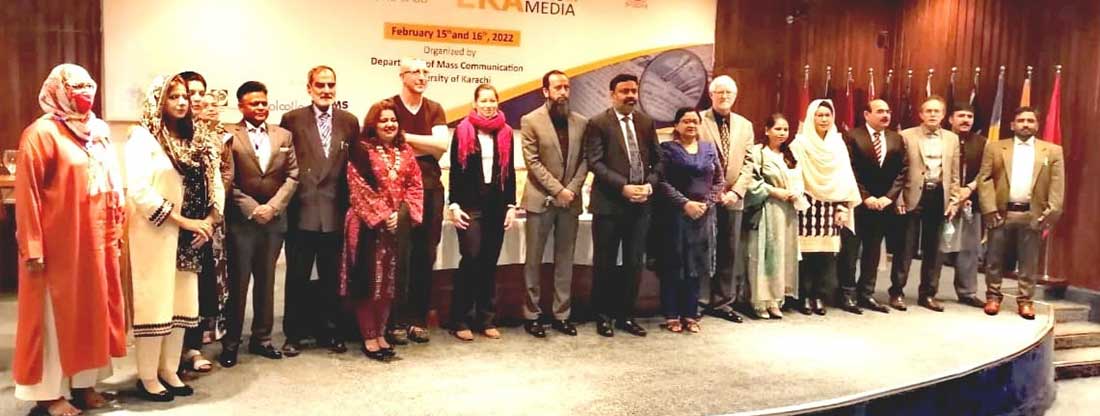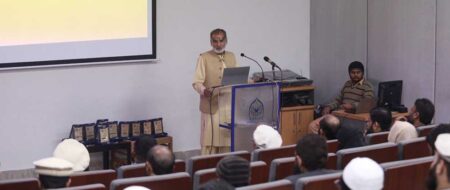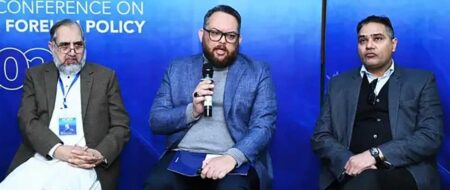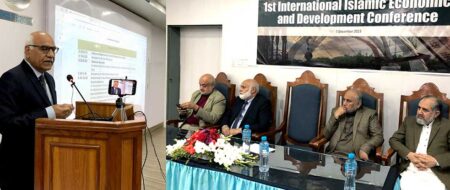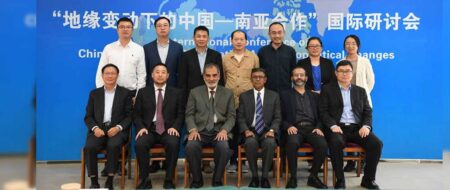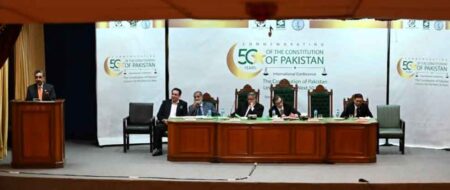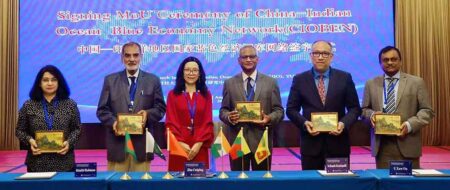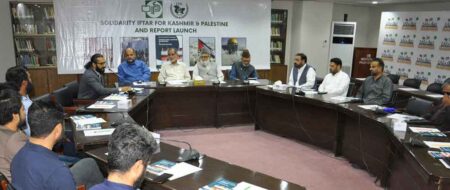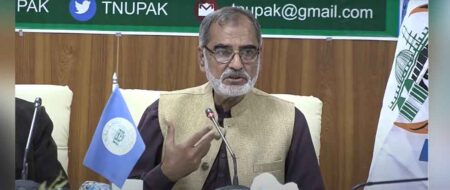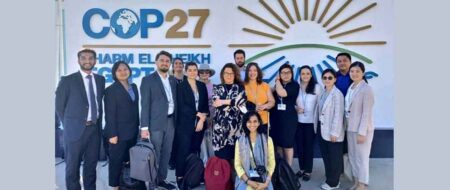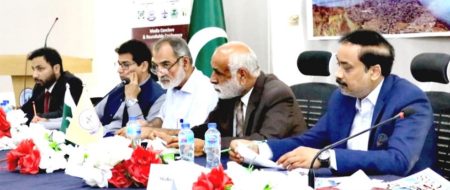‘Post-Truth Era: Trends in Media’
Fake news should be seen as blatant lies: Dr Nico Carpentier
It is not the ‘news’ when it’s not based on truth, as it does not serve the basic purpose of the news which is to be ‘for the good of the society’.
This was unanimously observed by a panel of national and international speakers during the first plenary session of a two-day international media conference ‘Post-Truth Era: Trends in Media’, which was held at the University of Karachi on February 15-16, 2022, with the joint collaboration of the University’s Department of Mass Communication, Sindh Higher Education Commission, Greenwich University, and Institute of Policy Studies (IPS), Islamabad.
The conference itself was presided over by Professor Dr Khalid Mahmood Iraqi, vice chancellor, University of Karachi, having Vice Chancellor Greenwich University Seema Mughal as a guest of honor. The chief guest of the inaugural session was Dr Asim Hussain, chairman, Sindh Higher Education Commission, whereas Former Deputy Chairman, Senate of Pakistan Saleem Mandviwalla graced the closing ceremony in similar capacity.
The first plenary session of the conference was addressed as keynote speakers by Prof Nico Carpentier, extraordinary professor at Charles University, Prague, Czech Republic, and Dr Alice Srugies, director of International Masters in Communication program, University of Gothenburg, Sweden. The session was moderated by Samina Qureshi, assistant professor, Department of Mass Communication, University of Karachi, whereas the other panelists of the session included Khalid Rahman, chairman IPS, Prof Dr Noshina Saleem, director, School of Communication, University of the Punjab, Dr Moazzam Ali Hashmi, former political affairs advisor to the US Consulate in Karachi, and Mubarak Zeb Khan, a journalist from Daily Dawn.
Discussing the impact of misinformation and fake news as a challenge to modern democracies, the keynote speaker Prof Dr Nico Carpentier said “It’s hard not to start it with Donald Trump”, before highlighting and scrutinizing various misleading statements made by the former US President during and before his tenure as the country’s premier.
The speaker was also very critical over the widely prevailing spread of misinformation through fake news around the world today, maintaining that fake news should be seen and termed as btalant lies and dealt with accordingly. “To counter the spread of misinformation or disinformation, the fake news should be termed fair lies.” He said before adding “Political lies should also be distinguished”.
Dr Alice Srugies highlighted the importance of crisis communication, explaining that the crisis communication process includes multiple voices which are both senders and receivers, trying to communicate to, with, against, about or past each other.
According to Dr Alice, in order to avoid a ‘hegemonic’ takeover of communication [which leads to disinformation and fake news], we need to strengthen empathy in communication, avoid scapegoating and silencing, and provide adequate resources for listening and engaging with different stakeholders affected by the crisis.
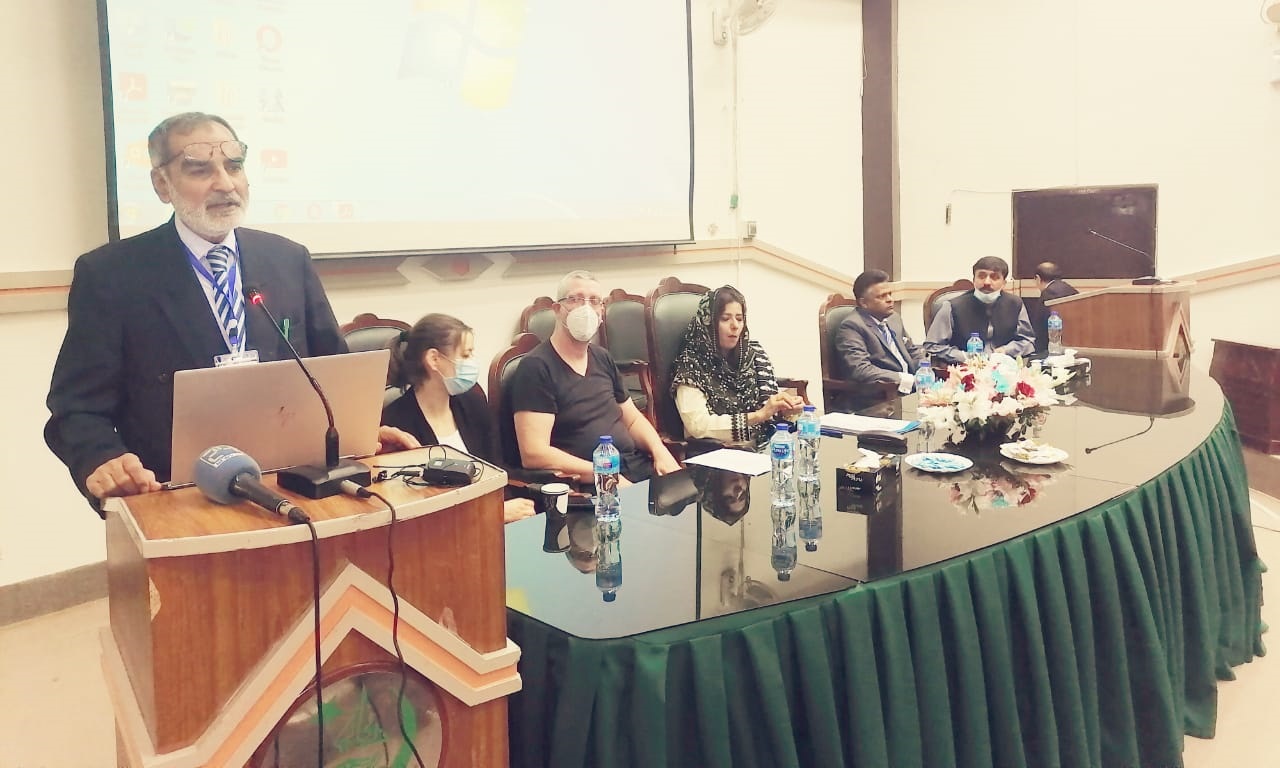 |
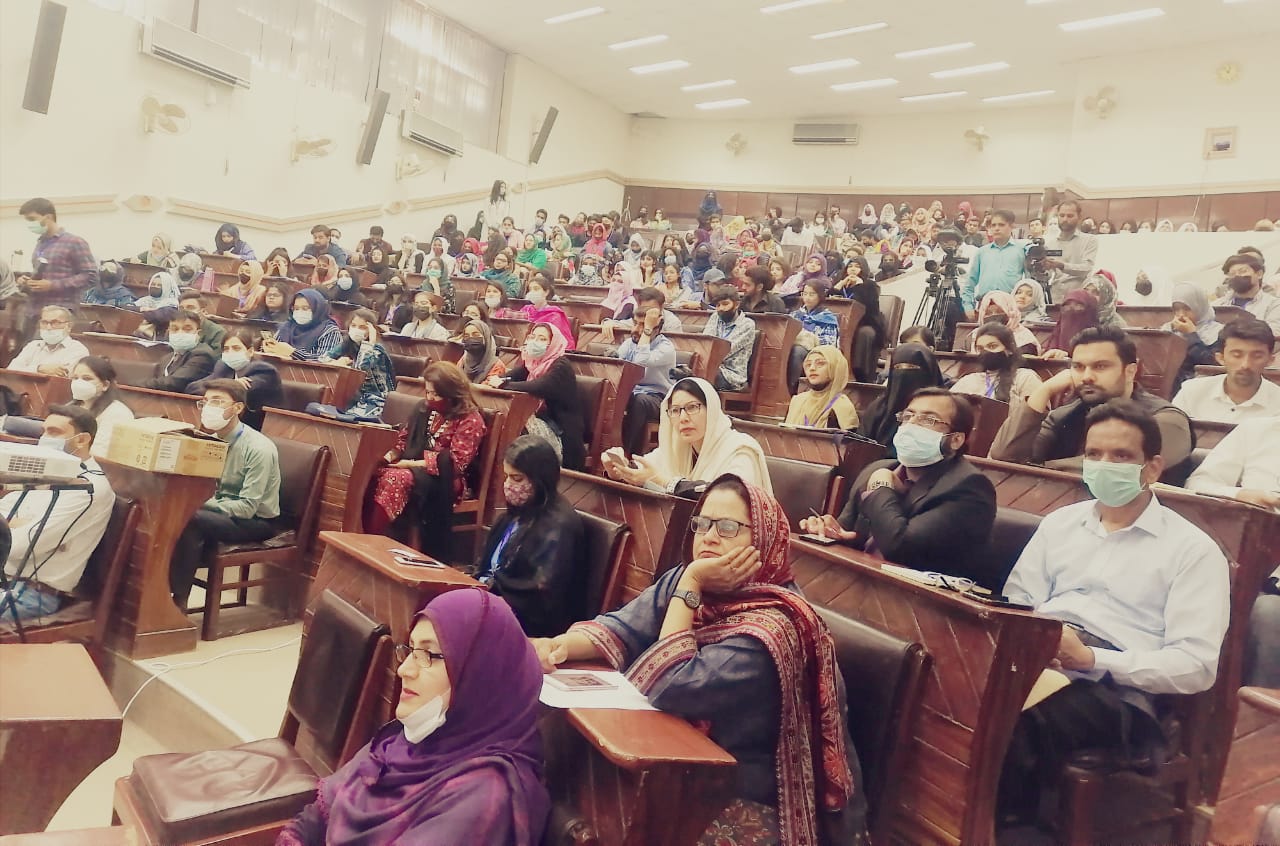 |
Rahman pointed out that 15th February, the first day of the conference, was a memorable day in relevance to the topic ‘Post Truth Era’ as on the same day back in 2003, USA decided to invade Iraq on the pretext that Iraqi government possessed ‘Weapons of Mass Destruction’, which later turned out to be a misinformation fabricated to influence the public opinion.
“When Fake News transmits from one individual to another, the damage is limited. But when it is institutionalized, and even worse, when it is orchestrated by governments, its impact becomes disastrous”, Rahman said. “Add to it the advent of modern technologies which have multiplied the speed, spread and scope of such transmissions, these developments have not only increased the possibilities of causing more damage to human societies, but are also beginning to cast serious concerns over democratic and civilizational spirits”, he added.
Professor Dr Noshina Saleem too highlighted the issue of dissemination of ‘fake news’ by means of social media applications, viewing that Social media applications have given wheels to the spread of fake news and mis/disinformation in modern times.
Dr Moazzam too reflected on the post-truth phenomenon, stressing that the journalists today needed to be equipped with sufficient relevant information to know the background of the issue they are raising, discussing or covering at hand.
The other speakers who addressed the two-day conference in other sessions included Professor Lee Artz, director, Center for Global Studies, Purdue University Northwest, US, Professor Cherian George, associate dean, Research and Development, School of Communication, Hong Kong Baptist University, Dr Ishrat Moin Seema, senior journalist and poet, Pakistan German Press Club, Berlin, Germany, Professor Yiheng Deng, Shanghai International Studies University, Shanghai, China, Dr Muhammad Noor Aladwan, assistant professor, Communication and Media Department, Al Ain University, UAE, Dr Fouzia Naz, chairman, Department of Mass Communication, University of Karachi, Prof Dr Nusrat Idrees, dean, Faculty of Arts and Social Sciences, University of Karachi, Zarrar Khuhro, senior journalist and host at Dawn News, Karachi, Nighat Dad, founding director, Digital Rights Foundation, Lahore, Dr Arshi Saleem Hashmi, department head, Peace and Conflict Studies, National Defense University (NDU), Islamabad, Dr Faizullah Jan, associate professor, University of Peshawar, Dr Abida Ashraf, professor, School of Communication Studies, University of the Punjab, Dr Zulfiqar Qureshi, Mass Communication Department, University of Sindh, Zohare Ali Sharif, CEO Asiatic Public Relations Network, Dr Salma Umber, assistant professor, Mass Communication, Government College University, Faisalabad, Dr Syed Abdul Siraj, dean, Allama Iqbal Open University (AIOU), Islamabad, Dr Ayaz Ahmed Siddiqui from Greenwich University and Dr Sadia Mahmood, Sameena Qureshi, Dr Raana Afzal, Dr Syed Azfar Ali, Dr Naveed Iqbal, Dr Uzma Qazi, Huma Zafar Rao and Syed Mohammad Abbas Rizvi from the Department of Mass Communication, University of Karachi, among others.


